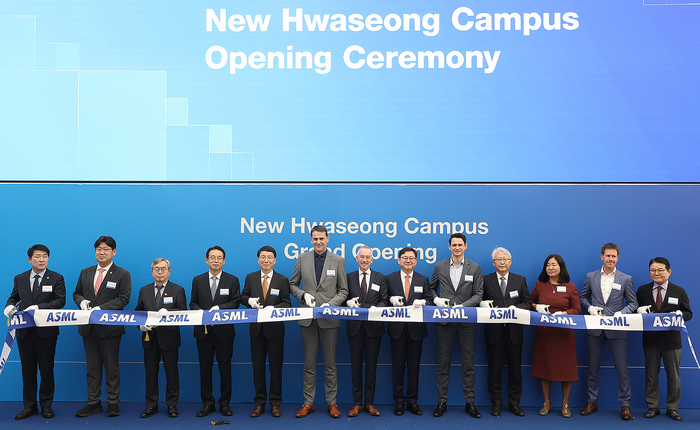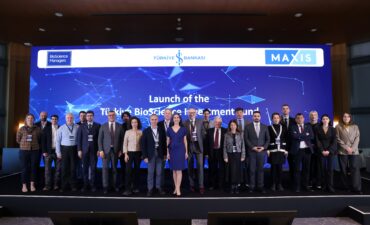This week’s stories are about tech, chips and sustainability, coming from Korea and the USA
1- Local resistance halts data center growth as opposition accelerates
State and local opposition to new data center construction is intensifying and succeeding, a new study shows, with the value of blocked or delayed projects in a recent three-month period exceeding the total of the prior two years. I saw this story at NBC News and the surge in resistance threatens a foundational component of the artificial intelligence AI) boom in the U.S.
A study by Data Center Watch, a project of the AI intelligence firm 10a Labs, found that an estimated $98 billion in data center projects were blocked or delayed from late March through June of this year. This figure significantly outpaced the $64 billion worth of projects that faced delays or blockages between 2023 and late March 2025, according to the story.
Researchers tracked “active opposition efforts” in 17 states, including Indiana, Kentucky, Georgia, and South Dakota, with 53 different local groups taking action against 30 projects.
The opposition groups were successful in blocking or delaying two out of every three projects they protested, underscoring the effectiveness of organized grassroots efforts, per the story.
The report noted that opposition is “cross-partisan and geographically mixed,” with blue and red states alike rethinking incentives and tightening rules.
The study also noted a trend toward rolling back tax incentives for data centers, as lawmakers increasingly question the value of subsidies, citing concerns over high energy use, fairness, and impact on local infrastructure.

2-ASML opens R&D complex in Korea, CEO visits Samsung and SK hynix
ASML CEO Christophe Fouquet met senior executives of Samsung Electronics and SK hynix as the Dutch chip-equipment giant opened a major new office and R&D complex in South Korea.
I saw this story at Korea Herald and Fouquet, who traveled to Korea for Wednesday’s opening of ASML’s new Hwaseong campus in Gyeonggi Province, held talks with Samsung Electronics Vice Chair Jun Young-hyun, industry officials said. He also met with SK hynix CEO Kwak Noh-jung.(By the way I have a story here about Samsung )
ASML is the world’s only supplier of extreme ultraviolet lithography machines, the critical tools required for producing cutting-edge chips at the 2-nanometer level and beyond.
The new complex, built on a 16,000-square-meter site, includes two buildings with 11 floors above ground and four below. ASML invested roughly 240 billion won ($164 million) in the project from 2021 to 2025.
ASML Korea said it is in the process of shifting staff and equipment to the campus, with about 1,500 employees expected to work there once the transition is completed by the end of 2025.
ASML’s expanded presence is also expected to speed up the company’s 1.2 trillion won ($817 million) joint R&D project with Samsung aimed at developing sub-2 nm technology using next-generation high-numerical-aperture EUV tools.
High-NA EUV machines, seen as vital for next-generation logic and memory production, are produced in limited quantities — only seven to eight per year — and cost about 550 billion won ($374 million) each, roughly 80% more than current EUV tools. Intel and TSMC have already begun deploying them, while SK hynix installed its first High-NA tool at its M16 fab in Icheon in September.

ASML opens R&D complex in Korea, CEO visits Samsung and SK hynix
3-Boeing signs carbon-removal deal with startup Charm Industrial
Boeing agreed to buy up to 100,000 metric tons of carbon removal from Charm Industrial, a U.S. startup that converts forest waste into “bio-oil” and stores it underground, the companies said.
I saw this story at Axios and the deal marks Charm’s first partnership with an aviation company and comes as emissions from air travel continue to rise and the aerospace sector searches for climate solutions that can scale over time. Financial terms and the delivery timeline were not disclosed, the story noted.
Charm’s process uses biomass collected from forest-management activities — such as thinning operations to reduce wildfire risk — that would otherwise be burned and release carbon dioxide. The material is heated in high-temperature pyrolyzers to produce bio-oil, which is then injected underground, including into retired oil wells. The process also yields biochar, a byproduct that can remove CO₂ when applied to agricultural soil to improve fertility, according to the story.
Aviation is one of the fastest-growing sources of CO₂ globally, and the industry lacks large-scale methods to cut emissions as it pursues net-zero goals for 2050. Sustainable aviation fuel remains limited, and current carbon-removal volumes are still negligible compared with the roughly 38 billion tons of global energy-related CO₂ emissions expected this year.
Charm’s customer list already includes Google, JPMorgan Chase and Frontier, a corporate coalition funding early-stage carbon-removal technologies. Let me add that the company raised $100 million in a Series B funding round in 2023 from General Catalyst, Lowercarbon Capital and other investors.

Image: Axios








